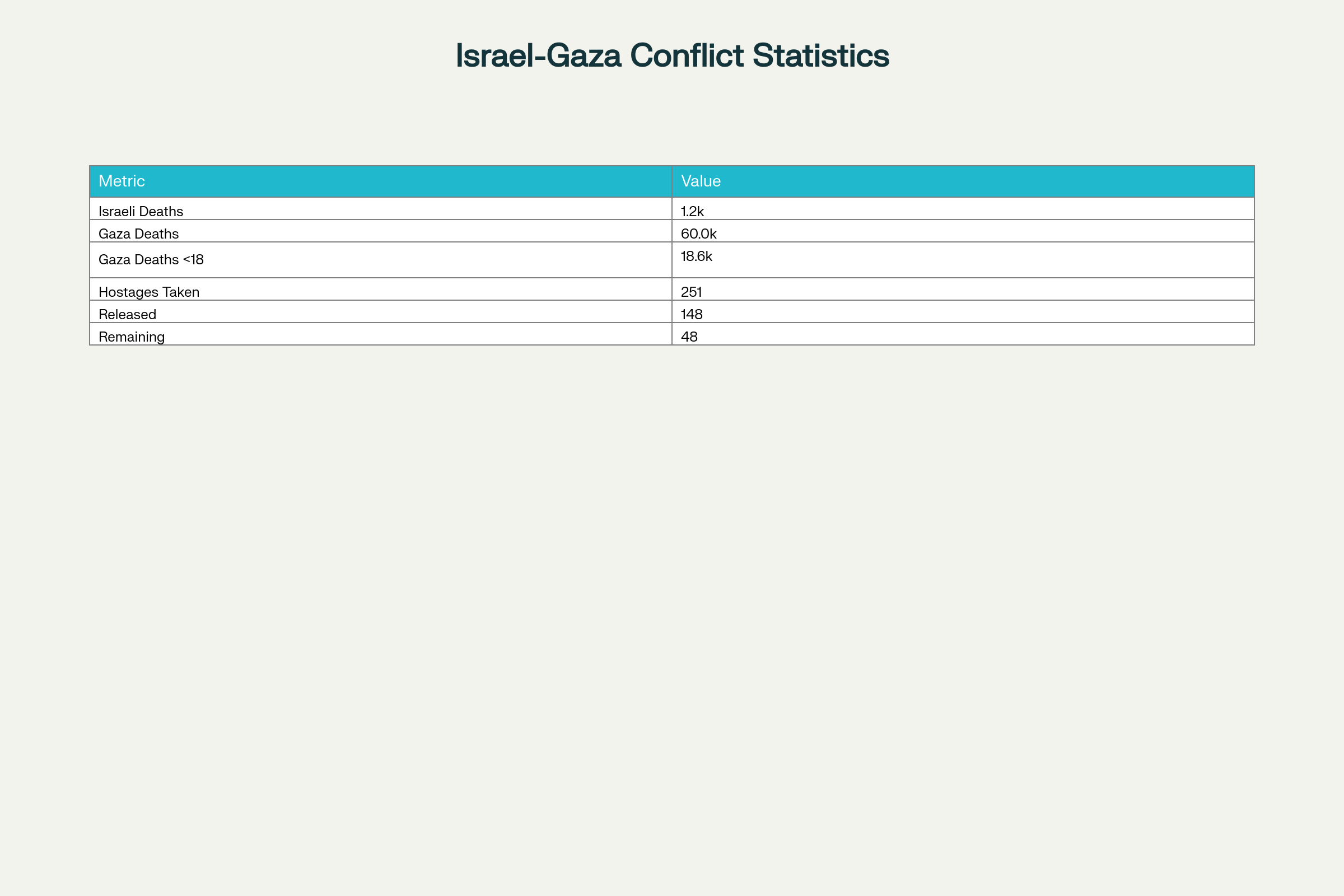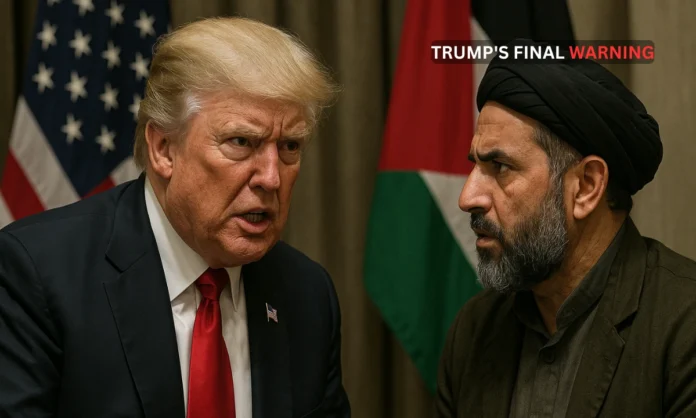Key Highlights:
- US President Donald Trump confirms Washington is conducting “very deep” US diplomatic negotiations while issuing ultimatum for immediate hostage release
- Approximately 48 Israeli hostages remain in Gaza captivity following Hamas’ October 2023 attack that killed 1,200 people
- US Presidential Policy Directive establishes coordinated approach for international hostage recovery operations with specialized diplomatic frameworks
Opening Overview
The United States has intensified diplomatic pressure on Palestinian militant group Hamas, with President Donald Trump confirming that Washington is engaged in “very deep” US diplomatic negotiations aimed at securing the release of Israeli hostages held in Gaza. Trump’s stark warning that the situation will become “tough and nasty” for Hamas unless all captives are freed immediately represents the latest escalation in high-stakes diplomatic efforts to resolve the ongoing crisis that began with Hamas’ October 2023 attack on Israel.
Trump’s negotiation statements, delivered to reporters on September 6, 2025, come as the US has introduced new ceasefire principles calling for the immediate release of all remaining hostages and the initiation of comprehensive talks to end the prolonged conflict. The current US diplomatic negotiations represent a critical juncture in diplomatic efforts to secure freedom for the 48 hostages who remain in captivity, with intelligence assessments indicating approximately 20 may still be alive.
According to US officials familiar with the ongoing diplomatic efforts, the American proposal entails the release of all hostages within the first 48 hours of any ceasefire agreement, paired with assurances that Israel would not resume military operations. These US diplomatic negotiations have taken on heightened urgency as Israeli forces have begun operations targeting Gaza City, creating additional pressure for diplomatic resolution.
The current US Diplomatic negotiations represent the culmination of nearly two years of intermittent diplomatic efforts following the October 7, 2023 attack that resulted in Hamas taking 251 hostages into Gaza. US hostage policy frameworks, established under Presidential Policy Directive 29, emphasize coordinated interagency responses and sustained diplomatic engagement while maintaining the longstanding American position of making no concessions to terrorist organizations.
US Diplomatic Strategy Intensifies Amid Hamas Hostage Crisis
The United States has deployed specialized diplomatic mechanisms designed to maximize pressure on Hamas while creating pathways for hostage recovery. Trump’s recent statements about the current talks reflect the implementation of established US hostage recovery protocols that prioritize coordinated diplomatic engagement across multiple government agencies.
- White House envoy Steve Witkoff has transmitted new proposals to Hamas through Israeli peace activists and regional mediators during recent diplomatic efforts
- The US proposal includes immediate hostage release coupled with cessation of Israeli military operations in Gaza City
- Trump administration officials report Hamas has received “some ideas” from Washington through intermediaries in ongoing US diplomatic negotiations
According to US diplomatic sources, the current negotiations involve approximately six broad ceasefire principles while leaving complex implementation details for future discussion. The American approach emphasizes immediate action on hostage release as a precondition for broader diplomatic engagement, reflecting established protocols outlined in Presidential Policy Directive 29 for overseas hostage situations.
US hostage policy frameworks mandate coordinated responses through dedicated Hostage Recovery Fusion Cells and specialized diplomatic envoys when American interests are involved in international hostage situations. These institutional mechanisms ensure sustained high-level attention to US diplomatic negotiations while maintaining strategic consistency across different government departments.
The ongoing talks have been complicated by Israel’s simultaneous military operations, including recent strikes against Hamas leadership in Qatar that occurred while diplomatic discussions were reportedly progressing. Trump expressed displeasure with these attacks, indicating tensions between military actions and current US diplomatic negotiations.
International Mediation Frameworks Shape Diplomatic Efforts
Qatar has emerged as the primary mediator facilitating diplomatic communications, leveraging its established relationships with the Palestinian militant organization to create channels for diplomatic communication. Qatari Prime Minister Sheikh Mohammed bin Abdulrahman Al Thani has actively pressed Hamas political leaders to “respond positively” to US proposals during talks in Doha.
- Qatar previously helped broker a pause in fighting during November 2023 and facilitated the six-week ceasefire in early 2025 through international mediation
- Egyptian intelligence services have provided additional mediation channels for communications during diplomatic efforts
- International diplomatic initiatives have resulted in 148 hostages being returned alive to Israel through various agreements and US diplomatic negotiations
The role of international mediators in current talks reflects broader Middle Eastern diplomatic dynamics where regional powers maintain communication channels with various militant organizations. Qatar’s mediation efforts have proved particularly valuable given the Gulf state’s ability to host Hamas political leadership while maintaining diplomatic relations with both Israel and the United States.
Regional diplomatic sources indicate that ongoing discussions have been structured around phased implementation, beginning with immediate hostage releases followed by broader ceasefire arrangements. This approach allows for incremental progress while addressing the fundamental demands of both sides regarding long-term security arrangements in Gaza.
However, the effectiveness of international mediation has been challenged by competing military and political pressures. Israel’s recent attack on Hamas leadership in Qatar drew criticism from mediating countries, with officials arguing that such actions undermine diplomatic progress and complicate ongoing US diplomatic negotiations.
Strategic Implications of Trump’s Hamas Ultimatum
Trump’s “tough and nasty” warning to Hamas represents a significant escalation in American diplomatic rhetoric, designed to create decisive pressure for immediate hostage releases during current discussions. The ultimatum reflects established US hostage negotiation principles that combine diplomatic engagement with clear consequences for non-compliance.
- Trump has declared his latest warning to Hamas as “the last one,” suggesting potential military or diplomatic consequences for future talks
- The US president claims Israel has accepted American ceasefire terms, placing pressure solely on Hamas for agreement in current US diplomatic negotiations
- Previous Trump ultimatums to Hamas have included threats of “HELL TO PAY” for continued hostage detention during diplomatic communications
US hostage policy emphasizes that while the government maintains its “no concessions” stance regarding terrorist demands, diplomatic communication with hostage-takers is both permitted and encouraged when it serves American interests. This framework allows for intensive discussions while preserving fundamental policy principles regarding terrorist organizations.
The strategic calculation behind Trump’s ultimatum appears designed to force Hamas into a binary choice between immediate hostage release and facing intensified Israeli military operations with explicit American backing. This approach leverages the combination of diplomatic pressure and military threat to create maximum incentive for Hamas compliance in ongoing talks.
Intelligence assessments suggest that Hamas leadership recognizes the severity of Trump’s ultimatum, with the organization publicly stating its readiness to return to discussions while maintaining demands for permanent ceasefire arrangements. The success of current US diplomatic negotiations may ultimately depend on whether creative diplomatic solutions can address both immediate hostage concerns and longer-term political arrangements in Gaza.

Key verified statistics on Israel-Gaza conflict and hostage situation as of September 2025
Closing Assessment
The current diplomatic efforts represent a pivotal moment in American initiatives to resolve one of the most challenging hostage crises in recent history. Trump’s escalated rhetoric, combined with intensive diplomatic engagement through regional mediators, reflects the administration’s commitment to securing hostage releases while maintaining strategic pressure on Palestinian militant organizations.
The success of ongoing US diplomatic negotiations will likely depend on Hamas’ willingness to prioritize immediate humanitarian concerns over longer-term political objectives. As Trump’s ultimatum creates a compressed timeline for decision-making, Hamas faces the choice between accepting American terms for hostage release or confronting intensified military operations with diminished international diplomatic protection.
US hostage recovery frameworks, developed through decades of experience with international crises, provide structured approaches for managing complex discussions while preserving American policy principles. The ultimate test of these diplomatic mechanisms will be their ability to secure the safe return of the remaining 48 hostages while creating conditions for broader regional stability through sustained diplomatic engagement.


